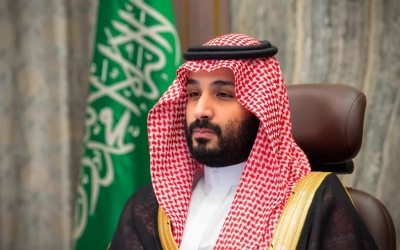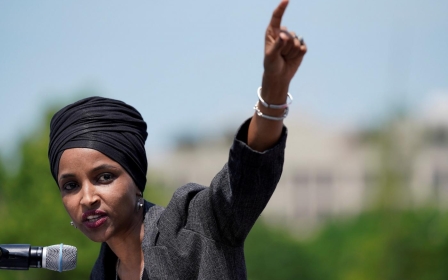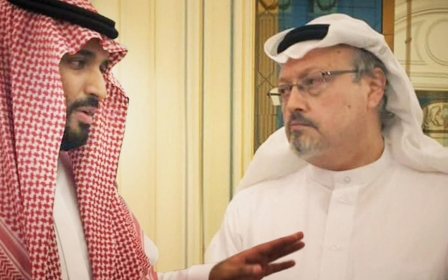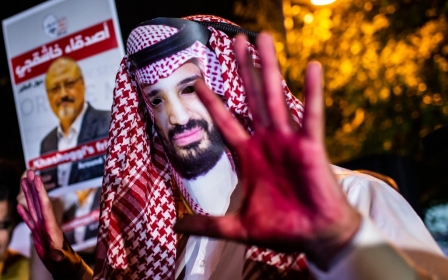Khashoggi murder: Twitter suspends thousands of pro-Saudi accounts following report release
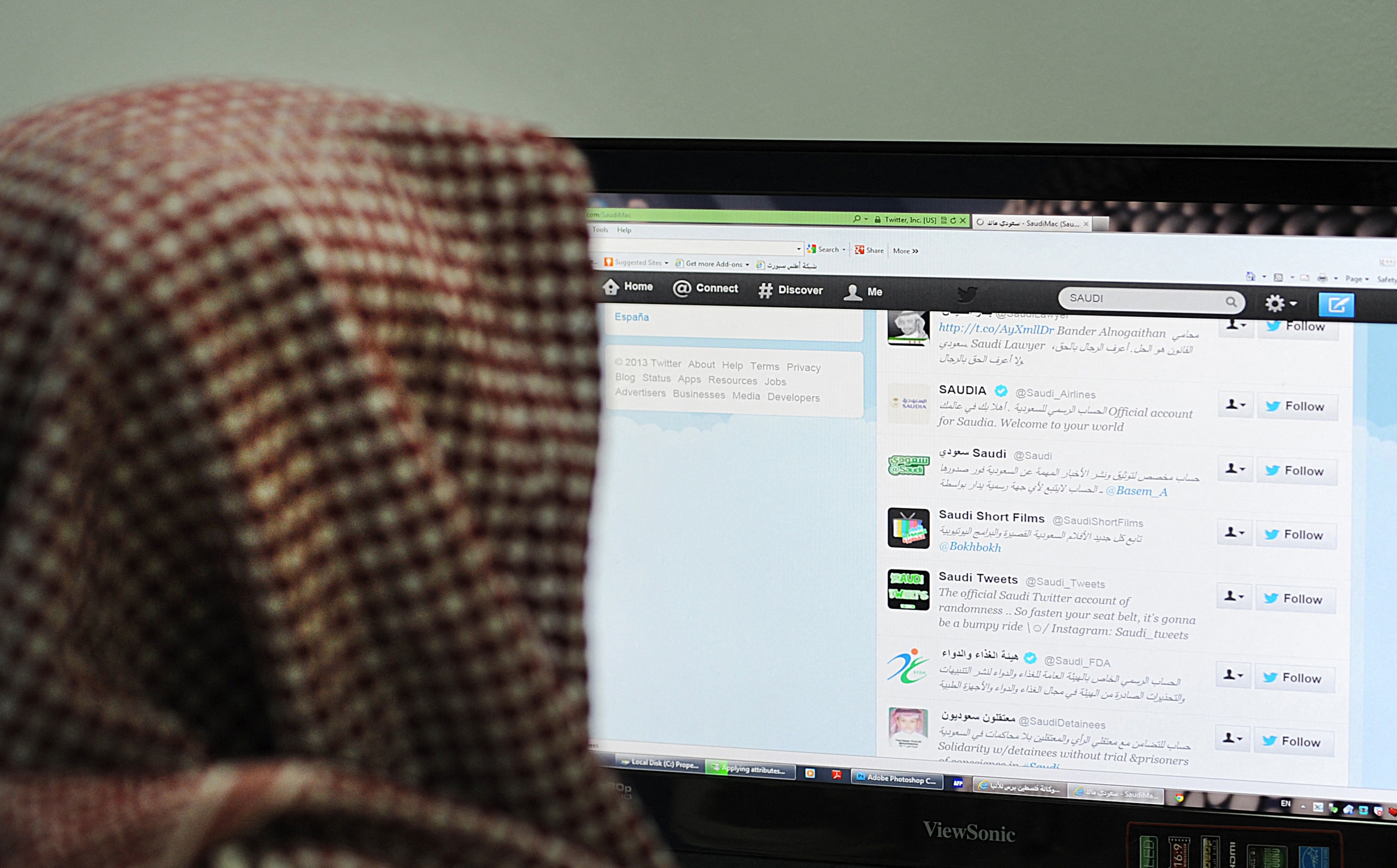
Twitter has announced the removal and investigation of thousands of accounts that it said were involved in spam activity, following the release of the US intelligence report into the killing of Saudi journalist Jamal Khashoggi.
The US intelligence report, the executive summary of which was published on Friday, publicly concluded that Saudi Arabia’s Crown Prince Mohammed bin Salman was responsible for Khashoggi's assassination in his kingdom's Istanbul consulate in October 2018.
Riyadh has repeatedly denied its de facto ruler played any part in the killing of Khashoggi, a Middle East Eye and Washington Post columnist.
'Authoritarian regimes and other bad actors attempt to generate trends in order to increase the salience of their message'
- Marc Owen Jones, social media analyst
Sarah Harte, a Twitter spokesperson, said the company had suspended around 3,500 accounts.
“Our internal teams have investigated and suspended any accounts engaged in platform manipulation and spammy activity in relation to this report, and we will continue to monitor this activity,” she said.
According to Marc Owen Jones, a social media analyst and professor of Middle East Studies at Doha's Hamad bin Khalifa University, a number of hashtags were used to dilute criticism of the crown prince on the day the report was released.
“The hashtags certainly make Twitter unusable for those attempting to follow genuine real-time conversation about the Khashoggi case in Arabic. Any keyword searches pertaining to the case are swamped with spam, misinformation, or tweets lionising the crown prince,” he told Middle East Eye.
An analysis conducted by Jones showed that several misspellings of Khashoggi were used in an attempt to avoid being blocked for violating Twitter’s spam policies.
Another key pattern identified by Jones was that 99 percent of the 1,152 accounts involved in the disinformation campaign used Twitter’s web app, showing almost no application diversity. He said the pattern shows inorganic behaviour and the Twitter web app is often used for platform manipulation.
Jones believes that hashtags and such campaigns are a key tool used to shape public perceptions around an event.
“Hashtags that trend are like newspaper headlines. Those that rank highly dominate the conversation by being salient. By the same token, trending hashtags demote other topics,” he explained
“Authoritarian regimes and other bad actors attempt to generate trends in order to increase the salience of their message. Fundamentally, hashtags are about controlling the thought diet of social media users.”
Inauthentic or suspicious activity
Research into the Twitter activity around the release of the report also showed that many of the accounts demonstrated inauthentic or suspicious activity, such as the majority tweeting the same thing and being recently created.
Prior to the release of the report, the hashtag "All_of_us_MBS" was trending in Saudi Arabia, where thousands of social media accounts rallied to support the crown prince, sharing photos of him and reiterating their loyalty to him and the kingdom.
Some were genuine accounts, but many others were suspicious. Dozens of identical tweets per second expressed their faith and support for the kingdom's rulers.
Another hashtag used prior to the release of the report was "The people of the kingdom support the crown prince".
Twitter has become one of the most widely used platforms for disinformation campaigns. According to Jones, this is because it has become one of the most common microblogging platforms for sharing breaking news, and people are able to interact with politicians, journalists and celebrities.
“This functionality has put it at the forefront of discussing political events in an open space. It is also relatively easy to manipulate, compared to, say, Facebook, and for this reason is popular with spammers and disinformation agents,” he said.
Iyad el-Baghdadi, an activist and outspoken critic of bin Salman, who has been warned by Norwegian authorities that he too was targeted by Saudi agents, also took to Twitter to highlight the bot campaign.
“We have said repeatedly that MBS cannot take a hint. If you are silent about his actions he takes it as permission. Here he is feeling empowered to go on the offensive, just days after the ODNI report. This is the result of impunity,” he tweeted, using a common abbreviation for bin Salman.
Baghdadi, who resides in Norway, has said that he now worries for his safety after it was revealed that no sanctions would be made against the crown prince.
“I feel less safe now than before the ODNI report. We went from a White House that denies MBS did it and lets him walk, to one that accepts he did it and lets him walk. Guess what’s a more dangerous world for dissidents.”
Trending topics and hashtags have proven to be an essential tool in framing conversations and influencing narratives, both within Saudi Arabia and beyond.
Bot accounts typically copy-and-paste the same content and spread it across social media networks in a short period of time, often looking like plausible accounts and featuring real people in the profile photos. However, they often do not interact with one another and focus mainly on broadcasting information.
The accounts will often tweet hundreds or thousands of times a day, to spread content or hashtags quickly.
The use of social media disinformation campaigns and hashtags to divert attention from issues, or reshape the narrative around them, are not new.
Targeted attempt to undermine public conversation
Last year, a Saudi-led disinformation campaign using various accounts and influencers spread information about an alleged coup in Qatar. A Saudi smear campaign also targeted Al Jazeera journalists Ola Fares and Ghada Oueiss due to their examination of sensitive issues in the kingdom, such as women’s rights and the murder of Khashoggi.
In April of last year, Twitter also announced that it had deleted over 5,000 accounts that were used to spread propaganda on behalf of Saudi Arabia and Egypt. According to Twitter, the accounts were “amplifying content praising Saudi leadership, and critical of Qatar and Turkish activity in Yemen”.
It said the Saudi-linked accounts were being run out of the kingdom and the United Arab Emirates, where Twitter's Middle East headquarters is based, as well as Egypt.
Twitter said it took the actions because the accounts violated its policies and represented a targeted attempt to undermine public conversation. However, mass Twitter campaigns have continued to be on the rise.
According to Jones, loopholes in Twitter’s policy allow such campaigns to thrive.
“There was an instance where the accounts were using Twitter marketing functionality to actually promote MBS. While Twitter bans political advertising it actually has a caveat that allows people to praise their leadership, which is quite incredible," he said.
"Essentially it is against their rules to pay for political advertising in democracies, but in dictatorships praising the leadership (where many have no choice) is permitted.”
Middle East Eye propose une couverture et une analyse indépendantes et incomparables du Moyen-Orient, de l’Afrique du Nord et d’autres régions du monde. Pour en savoir plus sur la reprise de ce contenu et les frais qui s’appliquent, veuillez remplir ce formulaire [en anglais]. Pour en savoir plus sur MEE, cliquez ici [en anglais].


